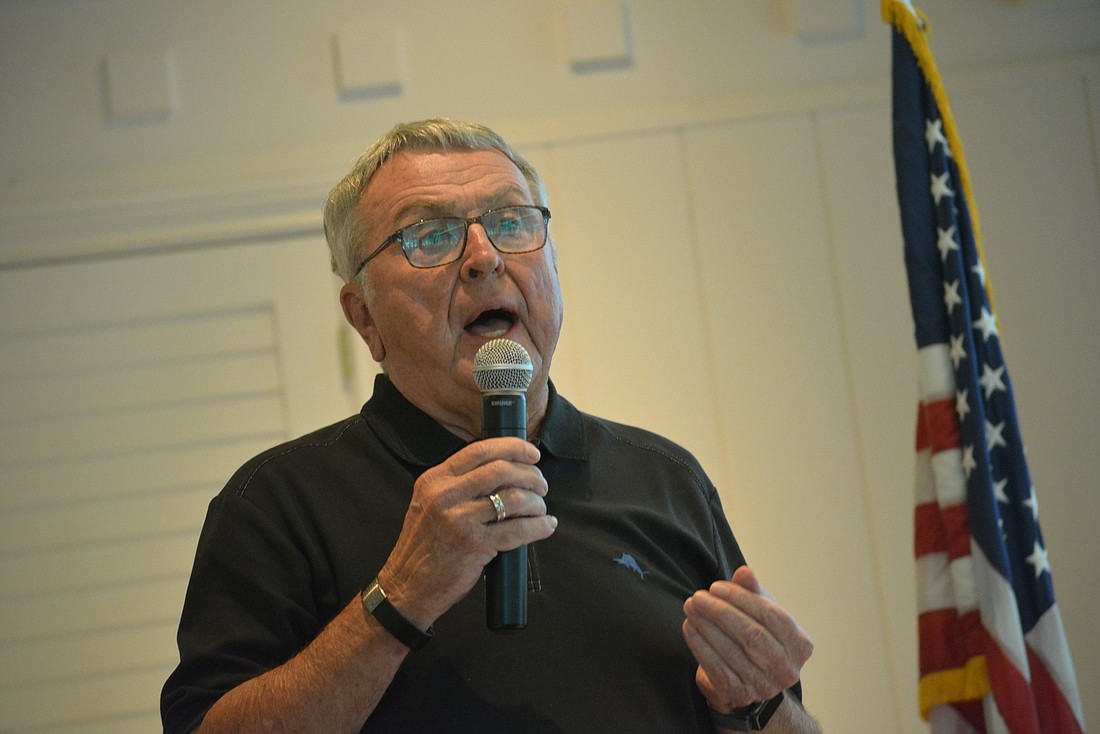- February 19, 2026
-
-
Loading

Loading

University Park Country Club resident Michael Smith said he hopes everyone in his community can have an “unusually wonderful Thanksgiving.”
The University Park Recreation District supervisor is hopeful the resident-controlled agency will be able to close on the 266-acre University Park Country Club and golf course, ponds within the community and an additional 100 acres of conservation area and
other land by Nov. 22.
At a meeting at University Park Country Club on Aug. 28, Smith and his fellow supervisors on the University Park Recreation District board approved a settlement that will allow the district to move forward with the purchase of the country club and other assets from its current owners, the Neal and Pasold families.
The settlement would end more than two years of uncertainty about the 1,202-home community’s future.
“People want to get on with clarity that the district owns the country club and its resources,” Smith said. “What we have is a reconciliation. It’s closure. We’re back together again, and we have a pristine community.”
The settlement ends a legal battle that began in January when University Park resident Richard Garrett filed a lawsuit in opposition to the creation of the recreation district and provisions in its charter that allow it to impose special assessments. Garrett said there were too many unknowns about future costs related to the land purchase and worried such assessments could especially burden the community’s elderly or those on fixed income.
After the board vote Aug. 28, Garrett thanked district supervisors for listening to his concerns, and he encouraged residents to unite again.
“I have pitted a lot of friends against friends,” he said. “It’s time to heal this community. It’s a wonderful community. We need to stand together. It’s time for us to move ahead.”
Smith said he hopes a judge could validate bonds for the purchase as early as Sept. 11. If that happens, the bond underwriting process could begin. It typically takes four to eight weeks.
Smith said as soon as it is complete, the closing could occur. He believes Nov. 22 is a likely date for the closing.
Smith said that the goal of the settlement was to minimize costs to residents by taking advantage of historically low municipal bond rates, to increase district reserves, to remove uncertainty in the community’s housing market and to eliminate acrimony in the community.
The University Park Recreation District spent about $250,000 defending its case against Garrett and expected those costs to rise significantly as it prepared for a November trial. Any future appeals could also increase costs.
Per terms of the sales contract, the purchase price for the land was also increasing by $46,000 per month through the end of September. After that, the agreement continued month-to-month but could be terminated by either party.
Low bond rates played a key factor in the deal. They are estimated to come in 1% lower than anticipated, at around 3%, which will translate into savings of about $5 million in interest over the life of a 30-year bond and more cash available.
Smith recommends the recreation board request bonds of $24 million, instead of $23.3 million, to capitalize on low interest rates and to put more money into the district’s coffers for repairs and other needs. Those changes, combined with the lower interest rate, would give the district an estimated $4.5 million to $5 million in reserves instead of $3.5 million.
Garrett said saving money on interest and having more money in reserves is what made him comfortable with dropping the lawsuit. He said he now believes there will be sufficient money available to avoid any sort of special assessment.
University Park residents said they appreciated the compromise and were grateful the community could move forward.
“I love this deal,” said resident Jack Siegel, who was one of about 100 people to attend the Aug. 28 meeting. “It was a great idea to seek a reduction in the cost.”
Mary Leflar, who opposed the original deal, said she was pleased and encouraged residents to come together as a community.
“This is a great day for all of us,” she said.
The Recreation District is now protected against other legal challenges pertaining to its creation. A one-year deadline for doing so has passed.